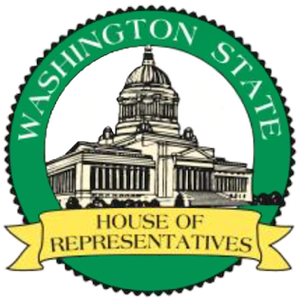The Washington State House Regulated Substances and Gaming Committee (WA House RSG) was charged with considering issues relating to the regulation and taxation of alcohol, tobacco, vapor products and cannabis, as well as product safety and access, and issues relating to the regulation and oversight of gaming, including tribal compacts. Formerly the Washington State House Commerce and Gaming Committee (WA House COG), the scope of the committee was changed at the beginning of the 2021 state legislative session before the committee was disbanded at the end of 2024.
Public Hearing
HB 1341- "Concerning cannabis license ownership." (not considered)- HB 2182 - “Creating a data dashboard to track use of regulated substances.”
- HB 2194 - “Legalizing the home cultivation of cannabis.”
- HB 2320 - “Concerning high THC cannabis products.”
Executive Session
HB 1650- “Requiring voter approval for local government prohibitions on cannabis businesses.” (not considered)
